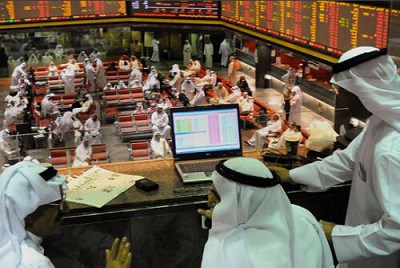Monday, 16 March 2015 18:02
 DUBAI: Dubai’s stock market may stay subdued for months as corporate profit growth slows and investors’ attention and money shifts to Saudi Arabia, which is about to open its market to direct foreign investment.
DUBAI: Dubai’s stock market may stay subdued for months as corporate profit growth slows and investors’ attention and money shifts to Saudi Arabia, which is about to open its market to direct foreign investment.
For the last several years, Dubai has been the focus for many investors seeking to ride the Gulf Arab economies’ economic boom. Its index more than doubled in 2013, making in the best-performing major market in the world.
Trading volumes ballooned several-fold as the market recovered from the global financial crisis of 2008-2009. International investors favoured Dubai as one of the region’s most open, accessible markets; Gulf investors, keen on short-term trading, were attracted by its liquidity.
But in the last few months, there has been a dramatic shift. Total trading volume on Dubai’s main bourse in February fell to its lowest level since March 2013, declining for a second month in a row. The index has fallen 4.3 percent this year after gaining 12 percent in 2014.
“Liquidity is gone and people have no more interest in the market,” said Sebastien Henin, head of asset management at The National Investor in Abu Dhabi.
“Markets (in the United Arab Emirates) will trade sideways in the coming months unless there is a trigger such as oil prices going further up.”
Hisham Khairy, head of trading on the institutional desk at MENA Corp in Dubai, said he also expected the market to remain subdued at least until most first-quarter earnings are announced around late April.
“Investors are not looking to buy at the moment,” he said. “The money is all in cash as investors are waiting. Most expect geopolitical issues, a correction in the real estate sector and a market correction.”
The slide in oil prices since last year has hurt sentiment in Dubai, but its economy does not have much direct exposure to oil, and there are deeper forces at work.
The combined earnings of Dubai’s 18 leading listed companies rose 37 percent year-on-year in the fourth quarter of last year, according to Thomson Reuters data; in the previous quarter, they surged 78 percent year-on-year.
Fourth-quarter earnings actually fell 7 percent from the third quarter, the first such decline since the second quarter of 2011, excluding seasonal dips in the third quarter of each year because of the Muslim holy month of Ramadan.
For 16 of those companies which are covered by analysts, combined 2015 profit is forecast to rise just 10 percent after jumping 48 percent in 2014.
One reason appears to be a developing slowdown in the property market. Few predict a downturn resembling Dubai’s property crash of 2008-2010; the market is much healthier and less leveraged now. But after two years of strong gains, analysts expect real estate prices in Dubai to fall slightly this year because of higher property sales fees, stricter mortgage rules and a lack of affordability.
Another key Dubai industry, tourism, also appears to be suffering because of the strengthening U.S. dollar, to which the UAE dirham is pegged.
Abu Dhabi National Hotels Co, which operates hotels in both Abu Dhabi and Dubai, warned investors last month that “many drivers in demand and supply in the hospitality industry are under pressure”. It said the depreciation of the euro and the Russian rouble, along with cheaper oil, might impact tourist arrivals from Europe, Russia and the Gulf.
SAUDI
Finally, Saudi Arabia is siphoning liquidity out of other Gulf markets as it prepares to open its bourse in the first half of this year. Gulf investors pumped a net 589.2 million riyals ($ 157 million) into Saudi Arabian equities in February, according to bourse data.
By contrast, investors from outside the UAE injected only a net 69.6 million dirhams ($ 19.0 million) into the Dubai Financial Market last month.
After two or three years, Saudi Arabia’s market opening could lead to the kingdom being categorised as an emerging market by index compiler MSCI, triggering billions of dollars of inflows from global funds. MSCI upgraded the UAE and Qatar to the same status last year, boosting stocks.
The overall outlook for corporate earnings growth in Dubai is still better than it is for Saudi Arabia, where petrochemical companies’ bottom lines have been ravaged by the oil price drop; profits at the top 90 listed Saudi companies are forecast to rise 5.6 percent this year, Thomson Reuters data shows.
But in contrast to Dubai, Saudi earnings growth appears to be accelerating; profits expanded 2.5 percent in 2014. Heavy spending by the Saudi government, including an estimated $ 24 billion of social handouts announced by King Salman in January, suggests non-oil sectors of the economy will continue to grow strongly this year.
“Saudi Arabia is having its day in the sun now and this will last until the implementation of the MSCI upgrade,” said Sanyalak Manibhandu, manager of research at NBAD Securities in the UAE. “Funds are being sucked out of here and Qatar.”
Copyright Reuters, 2015




























